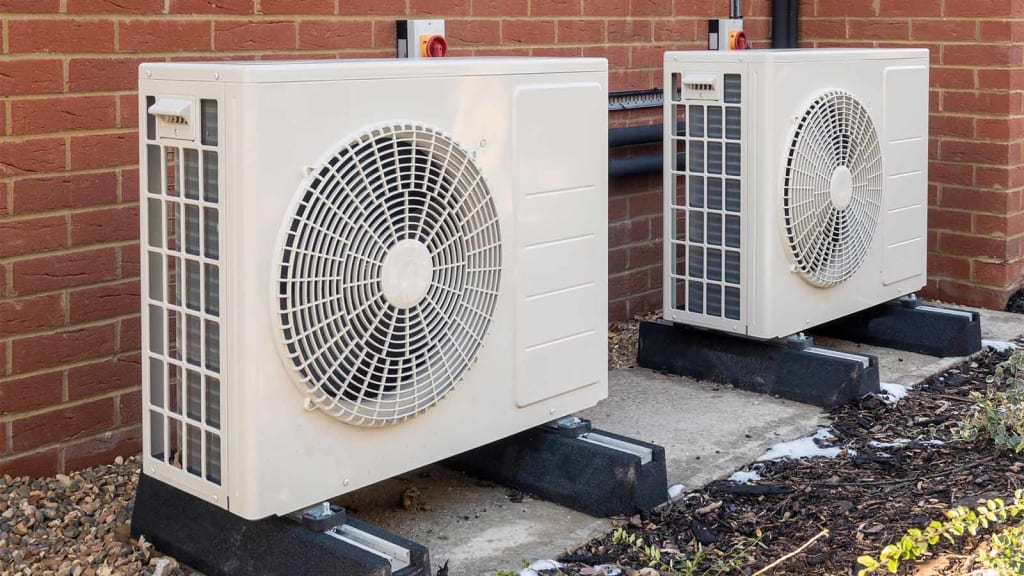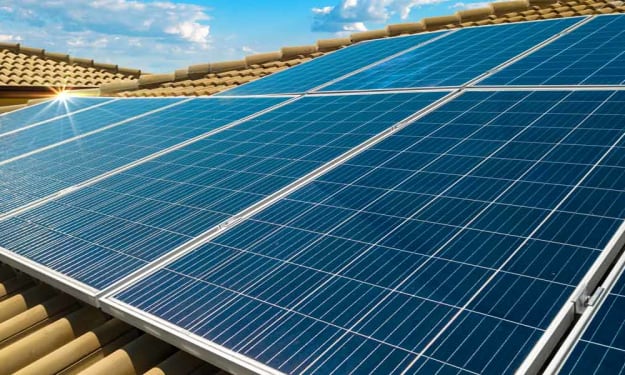Types of Heat Pumps: Efficiency of Heat Pumps
Efficiency of Heat Pumps

Heat pumps are a new name but the concept is not same. Heat pumps are in the market for many years. With the passage of time people understand the concept, benefits and uses of heat pumps. Heat pumps are a reliable energy source which is becoming more and more famous with every passing day.
Introduction
Heat pumps serve both heating and cooling purposes. Therefore, they are considered to be the best choice not only for new home and buildings but some people are also replacing their old heating or cooling systems with heat pumps. Heat pumps are efficient, reliable, cost effective and long lasting. They serve many different purposes from heating or cooling your home to providing you hot water etc.
The technology used by heat pumps is as simple as the refrigerators. They simply take heat from an outside source, convert this heat into energy with the help of electricity and give your home a heating or cooling facility according to your need and requirement.
Heat pumps are also considered eco-friendly because they have no carbon emissions.
Types of Heat Pumps
Heat pumps come in many different types and subtypes according to the purpose they serve. The two major types of heat pumps widely used are air source heat pumps and ground source heat pumps which are described below.
1. Air Source Heat Pumps
Air source heat pumps take heat from outside air and transform this heat into energy through electricity. Air source heat pumps have two units. One is known as outside unit while the other one is known as inside unit. The outside unit has to be placed outside the home or building. While the inside unit is placed inside on the wall.
Air source heat pumps are energy efficient solutions and less expensive as well. The major drawback is that they cannot work in extremely cold weather conditions. They fail to convert the freezing air outside into hot air to give your house a comfortable temperature.
2. Ground Source Heat Pumps
Ground source heat pumps are another type of heat pumps. They take their heat source from the ground core. The core of the ground has steady temperature throughout the year which is very helpful for the ground source heat pump to work properly even in extremely cold weather conditions.
Although ground source heat pumps are more efficient as compared to air source heat pumps but the initial cost is much higher as compared to air source heat pumps because ground source heat pumps involve ground work like excavation of the ground and underground pipe installation etc. this makes the installation process difficult and expensive but this type of heat pumps prove to be very much cost effective in the long run. Before choosing to install the GSHP, you must read the advantages and disadvantages of ground source heat pump.
Components of a Heat Pump
A heat pump consists of many components that work together to perform the task of heating or cooling. Its major components are described below.
- There is an outdoor unit of a heat pump. It works as a condenser in cooling mode and works as an evaporator in heating mode.
- Indoor unit is another component of a heat pump. It is placed inside. It comes with a fan and a coil to provide hot or cold air inside.
- Refrigerant is a component used to absorb and release the heat.
- Compressor is a component that pressurizes the refrigerant.
Efficiency of Heat Pumps Explained
Efficiency of heat pumps is measured with the help of different criteria. Following is a list of terminologies used to understand the efficiency of heat pumps easily.
1. Coefficient of Performance (COP)
COP is the ratio with which a heat pump transfers thermal energy by utilizing the electric power. For example, if a heat pump is producing 3Kw of heat energy by utilizing 1Kw of electrical energy, then the COP of the heat pump is 3.
2. Energy Efficiency Ratio (EER)
EER is similar to COP. The difference between the two is that EER defines the cooling efficiency of a heat pump. It is calculated by dividing the cooling capacity of heat pump in Btu/h by the electric energy in watts (W) at a particular temperature. EER is used to define only the cooling capacity of the heat pump, while COP can be used to describe both heating and cooling capacity of the heat pump.
3. Heating Seasonal Performance Factor (HSPF)
It is measured by calculating that how much electrical energy (in watt hours) the heat pump is using to deliver the heat energy (Btu) over the full heating season. The drawback of this type of calculation is that it may only represent data for a specific region only.
4. Seasonal Energy Efficient Ratio (SEER)
It is used to measure the cooling efficiency of a heat pump over the full cooling season. It is calculated by how much electrical energy (in watt hours) is utilized by the heat pump to produce cooling over the full season in (Btu). The SEER calculations are done based on the climate with average temperature of 28 degree centigrade.
Suitable Climate for Heat Pumps
Heat pumps are designed to provide both heating and cooling for your home but they are designed to work in milder climates. The most suitable climate for a heat pump to work efficiently is the milder one. Regions with extreme weather conditions like extremely hot or extremely cold are not suitable for the heat pump. In short, a heat pump does not work properly in extreme weather conditions and sometimes even don’t work at all!!!
Final Thoughts
Heat pumps are very energy efficient, pocket friendly, cost effective and easy to maintain product. Its installation is sometimes difficult and expensive but it proves very cost effective in the future.
About the Creator
Sarah Michelle
When you talk about the content ideas, no one can help you better than Sarah Michelle. With ample experience in the field and dedication to work has been a pro in increasing the aesthetic value.






Comments
There are no comments for this story
Be the first to respond and start the conversation.